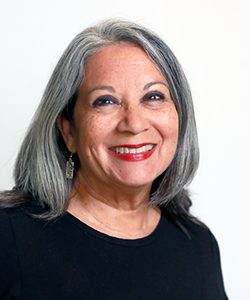
19 Mar Taking Charge of our Profession
I have recently become particularly interested in exploring what sign language and spoken language interpreters have in common and what we do not. One thing that seems crystal clear, especially now that so much public health information is conveyed through televised press conferences, is how well-organized ASL interpreters are when it comes to ensuring the communities they serve get quality interpreting services. Spoken language interpreters don’t have that. I just had to ask myself, why?
While it is true that not being able to hear is an unmistakable obstacle to full participation in a democratic society, not being able to speak or understand the mainstream language is just as much of an obstacle to any equitable participation in the social institutions that provide us with a sense of belonging and security. And yet, these impediments are not perceived equally by those “on the outside”. Yes, one is plain as day and the other one isn’t; but is that the only reason why ASL interpreters are so effective in the workplace as well as in the public spheres?
Why are ASL interpreters perceived differently?
No one questions, for example, when ASL interpreters work in teams. They say they need a teammate, no one pushes back. Spoken language interpreters are still trying to tear down that wall. We say we need a teammate and we are immediately questioned: why? Instead of conveying the image of professionals who sets their own standards of practice, spoken language interpreters tend to be unassertive, which makes us look like we don’t know what we’re doing. I suppose the formal education and training available to sign language interpreters provide that solid foundation on which to take a stand. Maybe spoken language interpreters need more educational and training programs that contribute to a heightened sense of personal and collective entitlement.
Sign language interpreters have a strong and well-respected national credentialing program through their Registry of Interpreters for the Deaf (RID). Spoken language interpreters are fully dependent on government agencies to provide such credentials in the legal field. We have no control over the way in which the competency, knowledge and ethical standards for interpreters are measured by different jurisdictions, resulting in a mishmash of credentials that are less or more reliable, depending on factors unrelated to best practices, such as budgetary concerns.
Uneven credentialing standards and not enough higher-level educational programs are two very significant factors contributing to the different status enjoyed by spoken and sign language interpreters. Still, I suspect there is more to it than that. I have also noticed that the deaf and hard-of-hearing communities served by ASL interpreters are very cohesive in their demands for access, whether it’s at a musical performance or a political rally. We have all witnessed state governments implementing new policies requiring the presence of ASL interpreters at public events as a direct result of community outcries when such services have not been provided. So where are the communities that spoken language interpreters serve? Where is their outcry for language access and for quality interpreters and translators? Sadly, there is none to be seen or heard.
Those who do not speak or understand English are too often hidden in the shadows of a society that bears no shame in its discriminatory attitudes towards the language-impaired. Those who cannot communicate in English are told to “learn it”, as if it were so easy for everyone to learn a second language. Ironically, only 7.5% of college students in the U.S. enroll in a course to learn a foreign language. Most English-speaking monolinguals in the U.S. expect others to learn their language, notwithstanding the fact that 75% of the world population speaks a language other than English.
There is a significant non-English speaking population in the U.S. that is forced to conceal their impediment lest they be publicly chastened and humiliated. Even when they have to appear in court as a litigant in a civil, administrative, or criminal matter, a request for equal access through an interpreter is not always granted. When it is, spoken language interpreters may also suffer the spill-over effect of the end-users’ marginal status, compounding what is already a precarious position within the hierarchy of the courts system. While it is true that many jurisdictions have come to embrace interpreters as bona fide officers of the court, many other jurisdictions are still ill-informed or unwilling to integrate interpreters as part of those who belong “inside the well of the court.”
Taking charge
 We recently witnessed the birth in California of a group intent on creating awareness among those who control our laws: the American Alliance of Professional Translators and Interpreters (AAPTI). It is a step in the right direction. If legislators do not know what we do and what it takes to do it at the required level of excellence, they will never understand how misguided legislation—like AB5 and similar bills in other states—can have an impact on the communities we serve. Legislators will never understand the need for standardized credentialing, either, unless we bring that knowledge to them.
We recently witnessed the birth in California of a group intent on creating awareness among those who control our laws: the American Alliance of Professional Translators and Interpreters (AAPTI). It is a step in the right direction. If legislators do not know what we do and what it takes to do it at the required level of excellence, they will never understand how misguided legislation—like AB5 and similar bills in other states—can have an impact on the communities we serve. Legislators will never understand the need for standardized credentialing, either, unless we bring that knowledge to them.
We need to educate ourselves first, so we may counteract the bullying trends against our fellow interpreters sprouting all over the country. Then we need to educate those who control our profession to make sure they understand the physical and mental demands a truly competent interpreter must endure. And, finally, we need to educate the communities that require our services so they know how, when, and where to demand equal access and—more importantly—quality services.
Advocating for interpreters by seeking the favor of those who control the profession from the outside is probably not the best approach. It will always be an uphill battle, like factory workers trying to get factory owners to consider their wellbeing instead of thinking first about the shareholders’ best interests. No one outside of our profession is going to have our best interest at heart. But if spoken language interpreters are to take a page from the sign language interpreters’ advocacy playbook, we have to take a good look at the communities we serve. A strong community that is knowledgeable of its rights and asserts them forcefully will be our most formidable ally. What spoken language interpreters lack, and sign language interpreters have, is exactly that: a community that is willing to make demands for language access and quality language services.
Empowering spoken language interpreters, like raising a child, takes a village. It takes a heightened self-awareness among judiciary interpreters; it takes assertiveness from the language communities we serve; and it takes informed decisions by both the court personnel we work with every day and the people who govern our society. Eventually, though, we need to be the ones in charge.

Janis Palma has been a federally certified English<>Spanish judiciary interpreter since 1981. Her experience includes conference work in the private sector and seminar interpreting for the U.S. State Department. She has been a consultant for various higher education institutions, professional associations, and government agencies on judiciary interpreting and translating issues. She worked as an independent contractor for over 20 years in federal, state and immigration courts around the U.S. before taking a full-time job. Janis joined the U.S. District Courts in Puerto Rico as a staff interpreter in April 2002 and retired in 2017. She now lives in San Antonio, Texas, embracing the joys of being a grandmother. She also enjoys volunteering for her professional associations, has been on the SSTI and TAJIT Boards, and is currently on the NAJIT Board of Directors. Contact: jpalma@najit.org
Read other posts by Janis Palma.

Very enlightening piece on our sign language counterparts!
I agree. Our profession is not a well known service to the Filipino communities. Hopefully, we can all do whatever we can, big or small, to change things.
Thank you!
Hopefully we all will be learning more from each other. Thank you for your comments!
As always, a thoughtful, compelling piece, Janis, but let me add a few thoughts in the hopes of contributing to the discussion. First, the Deaf community has protection from the Americans with Disabilities Act which is a quite powerful force. While there is a somewhat similar policy coming out of DOJ arising from President Clinton’s executive order on language access, it doesn’t have the same bite or force. Second, not that I agree with this, but there’s a widespread perception that Deaf folk have no choice and can’t help being Deaf, whereas the Spanish speaker who needs an interpreter is somehow making a choice and hasn’t tried hard enough to learn English.. That nurtures a sympathy factor that is often missing for native speakers of “foreign” languages. Third, I don’t think we can emphasize enough the need for higher education credentials and training for spoken-language interpreters. Court interpreting has limped along as a profession, in my view, because it can’t command the obvious respect that comes, rightly or wrongly, from professional formation in higher education. It has been almost impossible to get programs off the ground and even more difficult to sustain them (viz., College of Charleston’s MA and William Paterson’s minor).
On the other hand, I think the statement that no one outside the interpreting community has interpreters’ best interests at heart is somewhat exaggerated. It’s definitely far too often the case in far too many jurisdictions for sure, but any court manager worth his or her salt knows that good court administration requires professional performance by competent court interpreters who must be appropriately compensated, respected and supported. Hopefully there are quite a few exceptions to the general truth.
I love your pieces. Keep up the good work!
Robert, you hit the nail on the head with your comment regarding the perception that NES’s and LEP’s are to “blame” for not curing their inability to proceed in English by magically becoming native language proficient English speakers. We often hear the refrain, “my Great-Grandpa so-and-so came here from Someotherlandia and no one catered to him! These people need to learn to speak English just like he did!” That along with the maddening, “You get paid for talking in Spanish!” Sigh….
I hear you, Armida!
Agree on all fronts, Robert Joe. I had mentioned the ADA in my first draft and then deleted it. As to the sympathy factor–or lack thereof–I tried to convey that as well (“Those who cannot communicate in English are told to “learn it”, as if it were so easy for everyone to learn a second language.”) We are definitely seeing eye-to-eye on all your points, and I do not doubt there are more than a few well-intentioned court administrators who respect and support interpreters. My point, nonetheless, is that at some point we have to be the ones holding the reins, not riding on the back of the horse while someone else is in control. Thank you for all your wonderful feedback, Robert Joe!
Excellent article and an excellent contribution from Robert as well!!
Thank you, Michelle!
Janis, I really appreciated your insights regarding comparisons between the status of signing interpreters and spoken interpreters. Also , Robert’s responses expanding on the situation. Both very informative to me. on the differences. Thank you both.
I’m a linguist in forensic contexts with speakers whose first language is not the primary language of law enforcement and the judicial system. I frequently address issues involving language evidence, and interpreting is part of that– And when interpreting falls apart or is totally absent.
Agree that federal language access policies don’t have the same focused bite to it as the Americans with Disabilities Act does. I am also involved with international Plain Language communities which are prioritizing Language Access as Civil Right. (e.g. Clarity International).
Thus, I especially appreciated your two paragraphs on the situations of those who do not speak or understand English (or only minimally), of their being hidden in society, the accompanying discrimination and the need to conceal their limitations., and of being told just to “learn it”. The myths abound.
I agree with the need for greater advocacy with the courts about what it is like for litigants or other who appear in the courts where they do have strong communication skills in the language of the courts.
.
Thank you, Margaret, both for your comments and the work you do on an international level.
Just curious—what does the sign language in the picture represent? “Take charge,” perhaps?
Thanks for a very insightful piece. Sometimes we know things without having vocalized them, but it’s powerful when what we know is brought out in measured and logical thoughts!
Vicki, it is the sign for “word”. I thought it was quite appropriate. 😀
Thank you, Janis, for highlighting how sign language interpreters and spoken language interpreters differ in recognition and the possible reasons for that. We have come of age, let us act accordingly.
It is time for us to take charge of our profession (spoken language?), mainly because we are the ones who deliver the message to those who do not speak English. AAPTI’s mission is to promote the professionalization and advancement of translators and interpreters by lobbying and advocating for public policy that benefits the language profession and the community we serve. It is a start in the right direction and for that we seek the support of all our professional associations.
Our objective is to be at the front and center of any issues that affect our profession. We need a place at the table as subject matter experts. Anything less is unacceptable nowadays.
Thank you!
You are very welcome, Esther. I hope a lot of our readers reached out to AAPTI as well. We just have to keep building momentum to get where we want to be, together.
What a wonderful reflection! Thanks for bringing that up!
Excellent article!
Thank you, Jaqueline! I am so glad you enjoyed it.
RID and its state counterparts work in tandem with the local Association of the Deaf.
Our equivalent would be to connect with advocacy groups for the immigrants. So far, I have not seen any T and I association take that step.
I am suggesting that as a next step, indeed, Helen. Not just advocacy groups, but other NGOs, legal aid societies, grassroots groups, etc., working on behalf of the non-English speaking communities in the U.S.
HI VICKI. Great question with no one correct answer. Some might say that without context the “sign” shown represents nothing more than two hands. In context, it could be many things – a unit of measure, a proper noun or a an ideology. Without knowing if it’s American Sign Language vs a completely different sign language it’s impossible to say. It’s also lacking ALL of the other features of ASL like movement, placement relative to the body and facial grammar. To even begin to really tell you what it means requires an entire thought just like most WORDs in any other language. *smile*
At least one ASL interpreter who reached out to me “got it”, so I am happy. I realize movement (like in a video) would have been much better, but it was not going to work too well with this blog. Sorry! The idea, of course, is for all of us to keep learning from each other, so please spread the word: contributors to The NAJIT Observer are always wanted and welcome!
Glad my comments were helpful, so let me add a couple more that have occurred to me since. First, ASL interpreters don’t always have it any better than spoken-language interpreters. I’m reminded of a complex trial in a NJ county that had a very low volume of interpreted events. Two points: (A) Lack of exposure to cases involving LEPs presents challenges to interpreters of any language. I’ve noticed that in counties with high volumes, the use of interpreters being routine in many languages, judges and others experience them as part of the woodwork–essential partners in the administration of justice. But in jurisdictions with low or minimal volumes of interpreted events, the need for interpreters is often viewed as an anomaly that bollixes everything up, an inconvenience, a real pain (not to mention expense). (B) In this particular trial, both the defendant and victim were students at the state’s school for the Deaf. A team of ASL interpreters was provided for both of them. The judge was beside himself having four ASL interpreters working concurrently!
Second, I suspect that there’s also an element of bias against “foreigners” at work explaining the different world that Deaf folk inhabit vs. the world other LEPs inhabit. Anti-immigrant/refugee bias rears its ugly head, however unconsciously among the latter, compared with the sympathy that seems to characterize reactions to the former.
For what it’s worth, Robert Joe
Yes on many counts, Robert Joe, but sadly we are still too far from having all high-volume courts viewing interpreters–spoken or sign language–as “essential partners in the administration of justice” (e.g., Texas county courts), never mind the low-volume courts. Be that as it may, you and I are still on the same page. Thanks again!
Janis, Thank you for the wonderful useful tips on Sign Language and spoken language interpreters. Awesome post, Keep posting and good luck with the new upcoming post.
My pleasure, Saayed. Thank you for your comments.